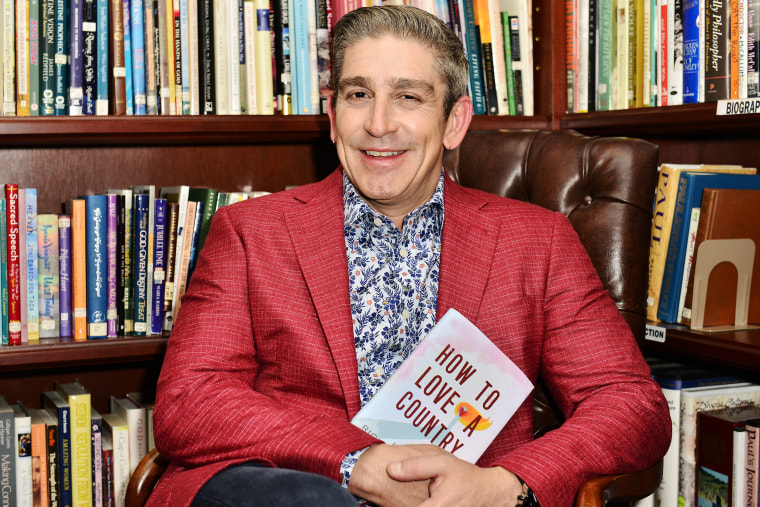The nation has gone through wrenching changes since Richard Blanco made history as the first Latino and openly gay inaugural poet, as well as the youngest, at President Barack Obama's second inauguration on Jan. 21, 2013.
Despite the recent turmoil, Blanco believes poetry can help make sense of the issues — and of ourselves as a country — as a new president is sworn in.
"Language matters — we've sure learned that these past four years!" said Blanco, the son of Cuban immigrants, who read the nation his poem "One Today" on a chilly January eight years ago. "Poetry truly understands that and uses language to make us feel and think of things in new ways.
"That's how it can help heal us — by asking questions we aren't asking of ourselves and others, by changing the conversation, the rhetoric, the discourse, so that we can see beyond abstract language of sociopolitical jargon and arrive at greater truths," he said.
Blanco's poetry is deeply embedded in the country's historical record. Blanco wrote and recited a poem in Havana, Cuba, to mark the Obama administration's historic opening of the U.S. Embassy after more than a half-century. The opening of relations was swiftly reversed by President Donald Trump.
"Everything feels somewhat bittersweet in several ways," Blanco said of Wednesday's inauguration, compared to 2013's. "I'm thinking about the beautiful memories I have of that Inauguration Day eight years ago, in stark contrast to the alarming images of the National Mall and Capitol that we're seeing now.
"I'm still in shock after all we have been through these past four years — and are still going through. But I also see those years as an important reckoning with the many sociopolitical issues that we have not fully dealt with as a country, as a people," he said. "And so, in that sense, I am hopeful this is a turning point in our democracy — granted, we could have gotten here without so much hateful rhetoric and violence."
Blanco, who has aimed to build "bridges of empathy" through his poetry, has tackled controversial issues like gun violence, immigration, race and police shootings through his poems. Blanco said he had the "distinct pleasure" of speaking with President-elect Joe Biden's inaugural poet, Amanda Gorman, 22.
"From what I know of Amanda's poetry, I imagine her poem will honestly convey our nation's troubles while also lifting us up in mind and spirit to address and overcome those troubles," he said, a day before Gorman captivated the nation with her poem, "The Hill We Climb."
"Besides her poetry, I think Amanda herself serves as a role model for our youth. I'm concerned about our youth these days — what they must think and feel about these tumultuous times. I hope they find inspiration in Amanda as an example of the power they have to make a difference in our country," Blanco said, adding that "we need" young people.
Blanco shared a stanza from one of the other poems he wrote ahead of Inauguration Day in 2013. He compares Americans' relationship to their country to a marriage — and he said it holds lessons for the current moment.
In "What I Know of Country," Blanco writes:
to know a country takes all we know of love:
some days better than others, but never easy
to keep our promise every morning of every
year, of every century, and wake up, stumble
downstairs with all our raging hope, sit down
at the kitchen table again, still blurry-eyed,
still tired, and say: Listen, we need to talk.
While it's easy to toss around words like "healing" and "unity," Blanco said, "I think that we first need to closely examine ourselves and have meaningful dialogue in order to truly understand what is ailing our country."
Follow NBC Latino on Facebook, Twitter and Instagram.



